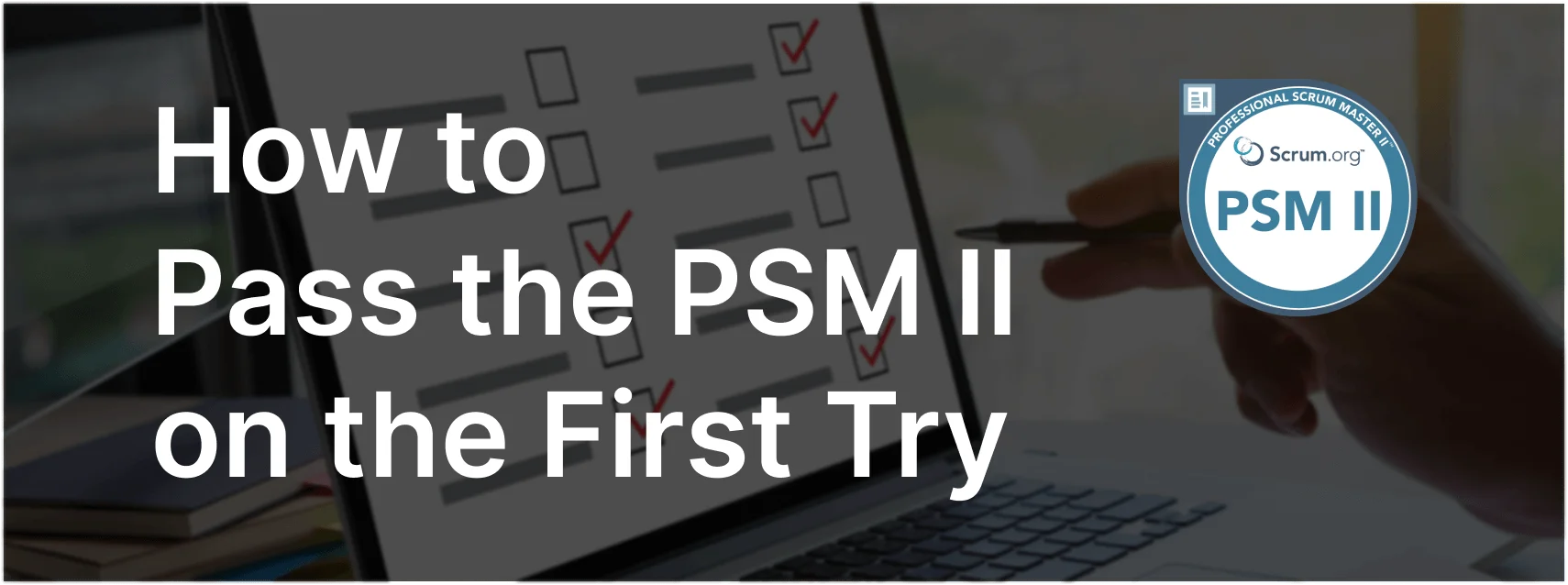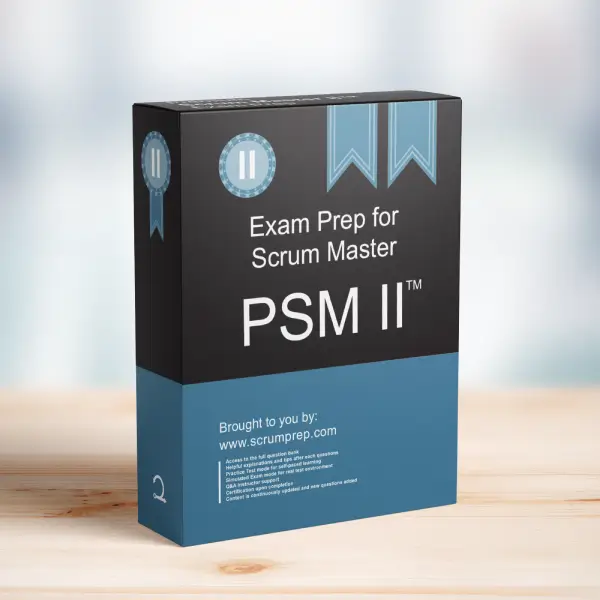Addressing Product Development Risks with Scrum
Scrum is designed to manage and mitigate various risks associated with product development. This article explores a specific exam question about identifying the risks that Scrum addresses, providing detailed explanations and insights relevant to the PSM II exam.
Exam Question
Which four of the following risks to product development are addressed by Scrum? (choose the best four answers)
- A. The complexity and unpredictability of the requirements.
- B. The stability and complexity of the technology.
- C. The skills and working relationships of the people on the teams.
- D. The timescale of the planned work.
- E. The clear definitions of stages and gateways in the overall governance model.
- F. The definition of incentive and bonus strategies by Human Resources for all team members.
Correct Answers
A. The complexity and unpredictability of the requirements.
B. The stability and complexity of the technology.
C. The skills and working relationships of the people on the teams.
D. The timescale of the planned work.
Explanation
Correct Answers
A. The complexity and unpredictability of the requirements: Scrum addresses this risk by using an iterative and incremental approach. By delivering work in short, time-boxed Sprints and constantly inspecting and adapting, Scrum helps manage changing requirements and reduces the risk of not meeting the customer’s needs.
B. The stability and complexity of the technology: Scrum supports managing technological complexity through regular inspection and adaptation. The iterative nature of Scrum allows teams to address and integrate new technologies incrementally, reducing the risk of technological failures or integration issues.
C. The skills and working relationships of the people on the teams: Scrum promotes self-managing teams and continuous improvement. By fostering a collaborative environment and encouraging regular communication through events like the Daily Scrum and Sprint Retrospectives, Scrum helps improve team dynamics and skill development, addressing the risk related to people and their interactions.
D. The timescale of the planned work: Scrum addresses the risk of timescale by using fixed-length Sprints. This time-boxed approach ensures that work is planned and delivered in manageable chunks, providing frequent opportunities to inspect progress and adapt plans accordingly. It helps in managing deadlines and delivering value incrementally.
Incorrect Answers
E. The clear definitions of stages and gateways in the overall governance model: Scrum is a framework that emphasizes flexibility and adaptability rather than rigid stages and gateways. It focuses on delivering value through iterative progress rather than following a predefined governance model.
F. The definition of incentive and bonus strategies by Human Resources for all team members: While incentive and bonus strategies can influence team motivation, Scrum does not specifically address this aspect. Scrum focuses on intrinsic motivation, self-management, and collaboration rather than external reward systems.
Responsibilities in Scrum
- Product Owner: The Product Owner manages the Product Backlog, ensuring that it is well-ordered and that the highest value items are prioritized. They collaborate with stakeholders to clarify requirements and manage risks related to changing needs.
- Scrum Master: The Scrum Master facilitates collaboration, ensures adherence to Scrum practices, and supports the team in managing risks related to people, processes, and technology. They help the team inspect and adapt through regular Scrum events.
- Developers: Developers are responsible for delivering potentially shippable increments at the end of each Sprint. They self-manage their work, continuously improve their skills, and address technical risks through regular inspection and adaptation.
Relevance to the PSM II Exam
Understanding how Scrum addresses various product development risks is crucial for the PSM II exam. It demonstrates advanced knowledge of Scrum principles and the ability of the Scrum Master to guide the team in managing risks effectively. Mastering this concept ensures that Scrum Masters can support their teams in delivering value while mitigating potential risks.
Key Takeaways
- Scrum addresses the complexity and unpredictability of requirements through iterative and incremental development.
- Scrum manages technological risks through regular inspection and adaptation.
- Scrum improves team dynamics and skill development through continuous improvement and collaboration.
- Scrum mitigates timescale risks by using fixed-length Sprints and delivering value incrementally.
Conclusion
Scrum effectively addresses several key risks in product development, including the complexity of requirements, technological challenges, team dynamics, and timescale. By understanding these risks and leveraging Scrum practices, teams can deliver value more effectively and adapt to changing conditions. Mastering these principles is crucial for effective Scrum implementation and success in the PSM II exam. For comprehensive preparation and practice exams, check out PSM II Exam Prep to enhance your understanding and application of Scrum principles.



